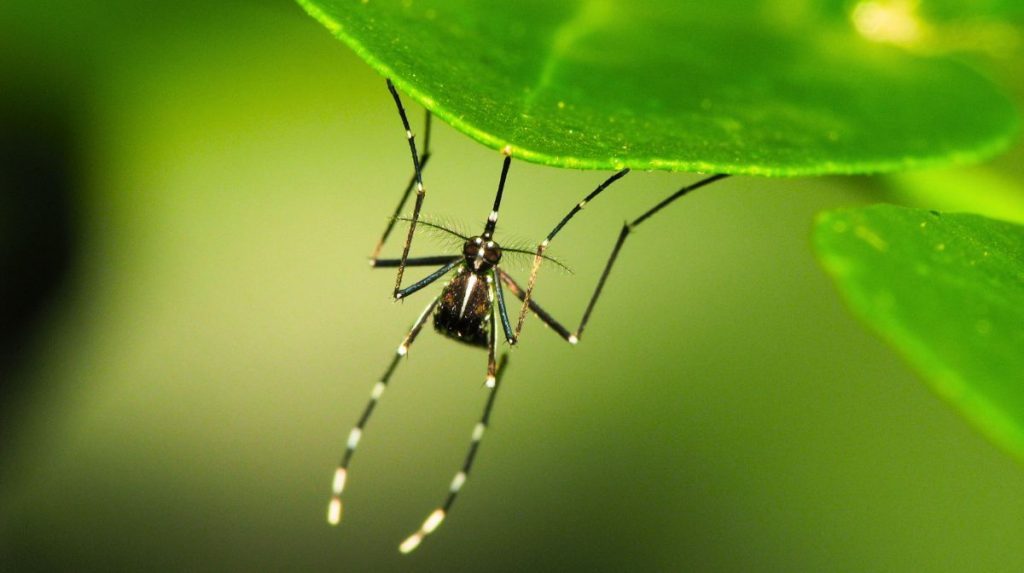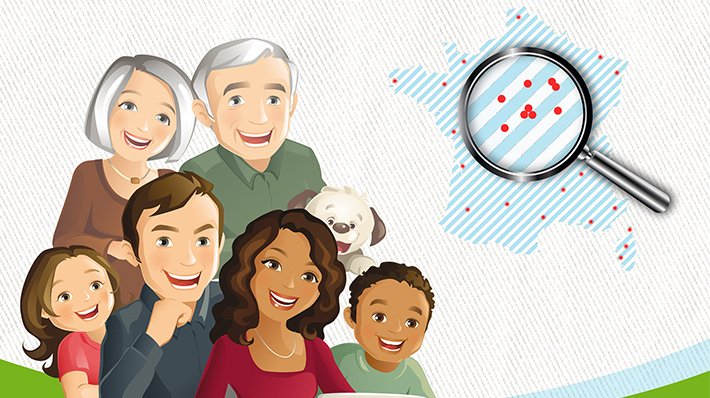
Should we be worried about our health before the next Olympic and Paralympic Games? This question deserves to be asked as this event will bring together millions of people in France who will arrive from all parts of the world. Three health surveillance specialists take stock of the risks to be considered.
An article in Inserm Magazine No. 59
From July 26 to September 8, 2024, the Olympic and Paralympic Games will attract up to 15 million visitors to France, in addition to thousands of athletes, volunteers and even journalists… Very busy areas are planned: the sites of the Olympic Games, but also the The location of the opening ceremony, the fan zones throughout France, the French club at La Villette in Paris… Another factor to take into account: many visitors will come from abroad. They will use this to balance gaming and tourism, and may be able to introduce diseases from endemic areas and encourage their spread. Therefore, various types of health risks are expected, especially heat waves and infection risks. Health authorities and those involved in monitoring and care are preparing for all eventualities.
Marie Bâville: Many scenarios are expected
As part of an analysis of all national stakeholders, the risks likely to arise during the Olympic Games were identified and prioritized. In the health sector, we particularly expect a possible heat wave during this period of annexation as well as the spread of infectious agents given the expected influx of tourists. The most likely infection risks are collective food poisoning during gatherings and on-site consumption, mosquito-borne diseases (dengue, Zika, chikungunya), acute respiratory infections including Covid-19 and diseases requiring surveillance such as meningitis, measles, diphtheria. However, so far there is no cause for concern or any particular warning sign.
However, we remain cautious and are organizing ourselves to be prepared for any eventuality, as the mixing of thousands of individuals could favor transmission. Our monitoring tools make it possible to closely monitor the health status of the population and detect possible weak signals.. In addition, the Directorate-General for Health, in collaboration with health authorities and regional stakeholders, prepares response systems and means to deal with all exceptional health situations. Many scenarios are expected. The aim will be to quickly inform the population about possible protective measures in the event of a threat and to organize the ramp-up of the health system and the referral of patients to suitable care channels. Health safety is a central theme of the Olympic Games.
Marie Bâville is Deputy Director for Surveillance and Health Security in the Directorate-General for Health.
Dominique Costagliola: A risk of increased unprotected sex
Infection risks also include those related to sexual health. However, millions of people are expected to attend this sporting but also festive event. It cannot be ruled out that there will be more improvised and unprotected sexual relationships in this exchange context. This risk is difficult to assess because we do not know exactly the visitor profile of this event. It seems that the audience is mostly family, but there will certainly be a large number of people who will come together and celebrate. And if the risk of HIV infection affects more men who have sex with men, surveillance carried out by Public Health France shows that other populations are not spared. There are also bacterial infections Chlamydia trachomatis and gonococci or even syphilis. The risk of infection from unprotected sexual intercourse can therefore affect anyone.
Local preparations must be made for the possibility of an increase in emergency situations when prescribing HIV post-exposure treatment or screening for sexually transmitted infections.. This will have an impact on emergency services. However, we know that they regularly encounter organizational difficulties in the summer. Fortunately, there are also sexual health centers and free information, screening and diagnostic centers for sexually transmitted infections and viral hepatitis (CeGIDD). However, it would be useful to plan for increased communication about post-exposure treatment against HIV and to facilitate free access to condoms during this period.
Dominique Costagliola is Research Director Emeritus Insert at the Pierre Louis Institute for Epidemiology and Public Health, Inserm Grand Prix 2020.
Pierre-Yves Boëlle: Monitoring for the detection of low-noise signals
The risk of an epidemic outbreak appears unlikely during the Olympic Games. Summer does not favor viral epidemics and the French population, which will make up the majority of spectators, generally has good vaccination protection against common diseases. However, the possibility of a reemergence of monkeypox viruses cannot be ruled out. To this end, the task of health authorities is to increase surveillance during the games with the aim of detecting a low-noise signal – that is, cases of infections that, although numerous, are likely to herald an outbreak. contagious – to be able to intervene quickly. Several surveillance systems are used, including the Sentinels network coordinated by us, which collects data from general practitioners for around ten diseases such as acute respiratory infections, acute diarrhea, etc.
We will have the opportunity to focus data analysis on the Games venues and provide more regular results than usual. This allows any changes in the signal to be highlighted. We did this during the 1998 World Cup without noticing anything unusual. There are other networks of doctors or even analytical laboratories, for example to monitor vector-borne diseases, meningitis, bacterial sexually transmitted infections, etc. Increased vigilance must be devoted to the activity of emergency centers or structures such as SOS Médecins, which are best suited to handle cases difficult to detect, rapidly developing infectious diseases.
Pierre-Yves Boëlle is Inserm Research Director at the Pierre Louis Institute for Epidemiology and Public Health.
Comments collected by AR
also read







